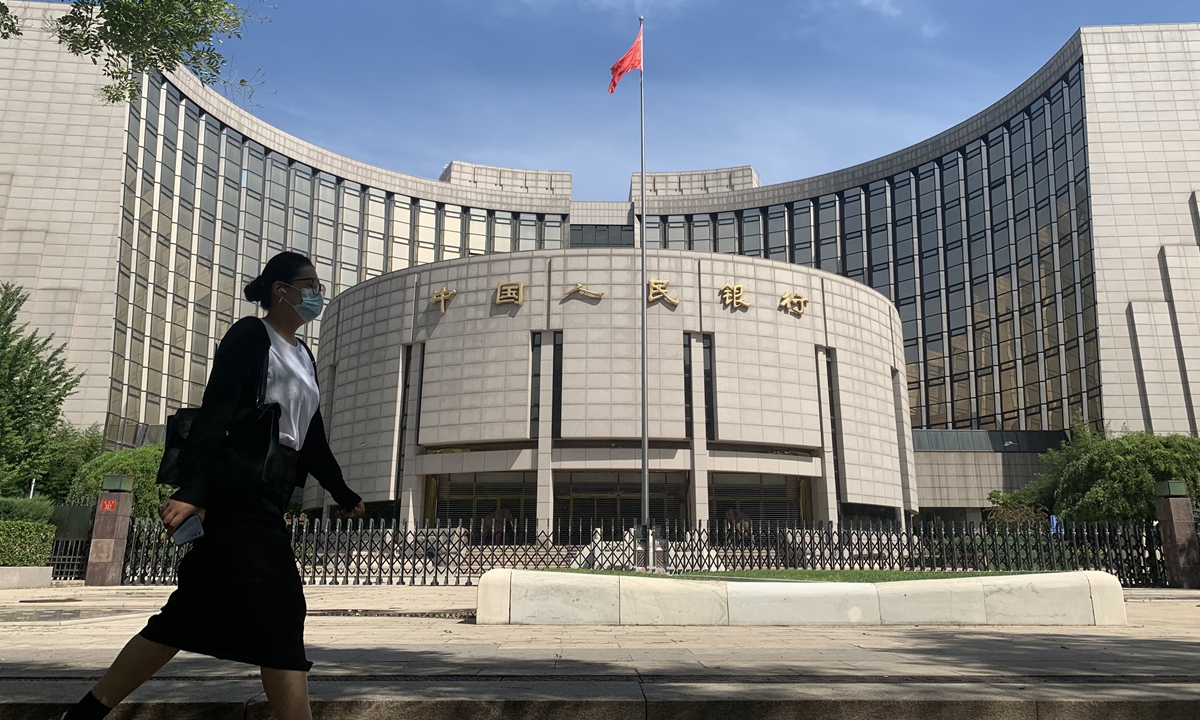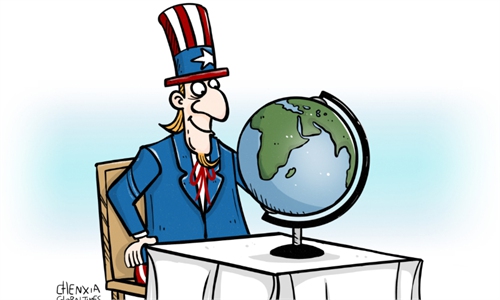China urges cooperation at G20 amid ‘weak’ global recovery, spillover risks
Spillover from advanced economies poses risk: experts

A view of the PBC building in Beijing Photo: VCG
At the recent meeting of finance ministers from the G20 countries, China and other major economies agreed to enhance macro policy coordination, as the global economic recovery remains weak, according to China's central bank.
China is expected to make major contributions to global growth this year, but negative spillovers from policies in advanced economies pose a serious risk for the global economy, which demands global coordination, experts noted.
Held from Thursday to Saturday in India's Bengaluru, the latest G20 Finance Ministers and Central Bank Governors (FMCBG) meeting discussed issues including the global economic situation, sustainable finance, the international financial structure and other matters, according to a statement published by the People's Bank of China (PBC), China's central bank.
The meeting agreed that the momentum of the world economic recovery remained weak, and the G20 members agreed to continue strengthening macro policy coordination to push the realization of sustainable development, the statement said.
Xuan Changneng, PBC deputy governor, made a speech at the meeting, during which he discussed China's economic and financial situation and monetary policies.
In particular, he said that the PBC, as co-chair of the G20 Sustainable Finance Working Group, will "work with all parties to jointly push this year's work for achieving positive results."
Dong Shaopeng, a senior research fellow at the Chongyang Institute for Financial Studies at Renmin University of China, said that one focus of this year's G20 cooperative work is preventing some developed countries' monetary policies from spilling over to developing countries and affecting the latter's financial stability.
This means that developed countries should pay attention to the pace of their interest rate hikes and strengthen coordination with developing countries in formulating their financial policies, he said.
"The G20 and some large nations have made some coordination efforts in recent years to stabilize international currency liquidity, currency supply, pricing and other matters, but the US has still behaved unscrupulously without enough care for other nations' interests," Dong told the Global Times on Sunday.
Last October's FMCBG meeting agreed to bolster multiple commitments to create a resilient global financial system, including enhancing the Global Financial Safety Net and allocating Special Drawing Rights to support vulnerable countries, according to media reports.
Experts stressed that strengthening macro policy coordination is a "must " when fluctuations in the European and the US markets are intensifying and the global economy is facing the risks of a hard landing and stagnation as a result of the US Federal Reserve's overly fast interest rate hikes and the unsynchronized operations among major central banks.
"If countries don't join hands to prevent the risks of an economic hard landing from spilling over from Western countries to the world, the global economy will face severer challenges in 2023," Chen Jia, a macroeconomic observer, told the Global Times on Sunday.
Reserve Bank of India Governor Shaktikanta Das on Friday said that the outlook for the global economy had improved in recent months, but uncertainties "lie ahead of us," according to Indian media.
Besides macro policy coordination, the FMCBG meeting stressed the importance of developing sustainable finance and agreed to focus on promoting the mechanism for mobilizing adequate climate financing this year, the PBC statement noted.
Experts also stressed that China's call for G20 cooperation reflects the country's initiative and responsibility in addressing global economic risks at a time when the prospects of global cooperation are dimmed by rising political friction.
Tian Yun, an independent macroeconomic analyst, said on Sunday that one major contribution made by China is that it is still actively pushing for an improvement in China-US relations and relations with some other nations despite hurdles.
"One shared interest among G20 members is that nobody wants another global financial or economic crisis under the current situation, although the possibilities of this happening are not decreasing, but increasing in 2023. This is the general direction," Tian said, noting that the current political environment is not beneficial to breeding concrete cooperation.
Despite the need for cooperation, some US officials have continued to smear China's economic development.
According to Tian, such criticisms are made from political perspectives instead of out of wishes to improve bilateral or global trade.


